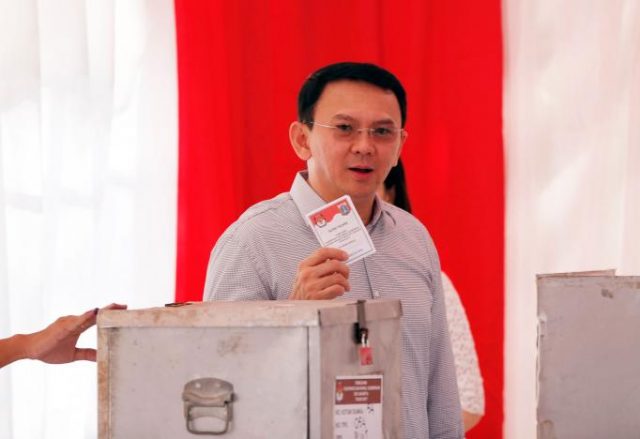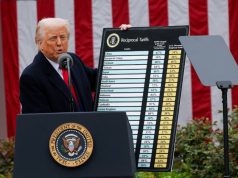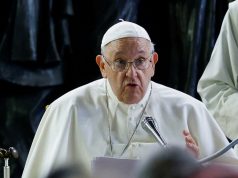
JAKARTA — (UPDATE – 10:06 a.m.) Indonesians lined up on Wednesday to vote in an election to choose between a Muslim and a Christian candidate to govern Jakarta, after a bruising campaign marred by religious tensions in the capital of the world’s third-largest democracy.
The vote is expected to be a close race between the incumbent, Basuki “Ahok” Tjahaja Purnama — the city’s first Christian and ethnic Chinese leader — and a former education minister, Anies Baswedan, who like 85 percent of Jakarta residents, is Muslim.
Security is also unusually tight for the poll. Police say about 66,000 personnel will be deployed in the city of some 10 million people to prevent voter intimidation and civil unrest.
The election is viewed as a test for Indonesia’s young democracy and record of religious tolerance.
Given Jakarta’s outsized importance as both the nation’s capital and commercial center, the election is also viewed as a barometer for a 2019 presidential election.
Purnama is backed by President Joko Widodo’s ruling party.
Religious tensions have been an undercurrent in the campaign, with Purnama on trial for blasphemy over comments he made last year that many took to be insulting to Islam.
Hundreds of thousands of Muslims took to the streets late last year to call for his sacking and to urge voters against electing a non-Muslim leader.
Purnama faces up to five years in jail if convicted of blasphemy. His trial will resume on Thursday, when prosecutors will submit their sentence request.
Baswedan, is backed by a conservative retired general, Prabowo Subianto, who lost to Widodo in a 2014 presidential vote.
Both sides have raised concerns about intimidation and warned against voter fraud.
About 7 million people are eligible to vote until 1 p.m. (0600 GMT), when polling stations close.
Private pollsters, approved by the national elections commission, are expected to announce an unofficial tabulation of a sample of votes, known as “quick counts” within a few hours of polls closing. The elections commission is expected to announce official results by the first week of May.
The loser, however, can contest the results in the Constitutional Court, which could prolong political uncertainty for weeks.









